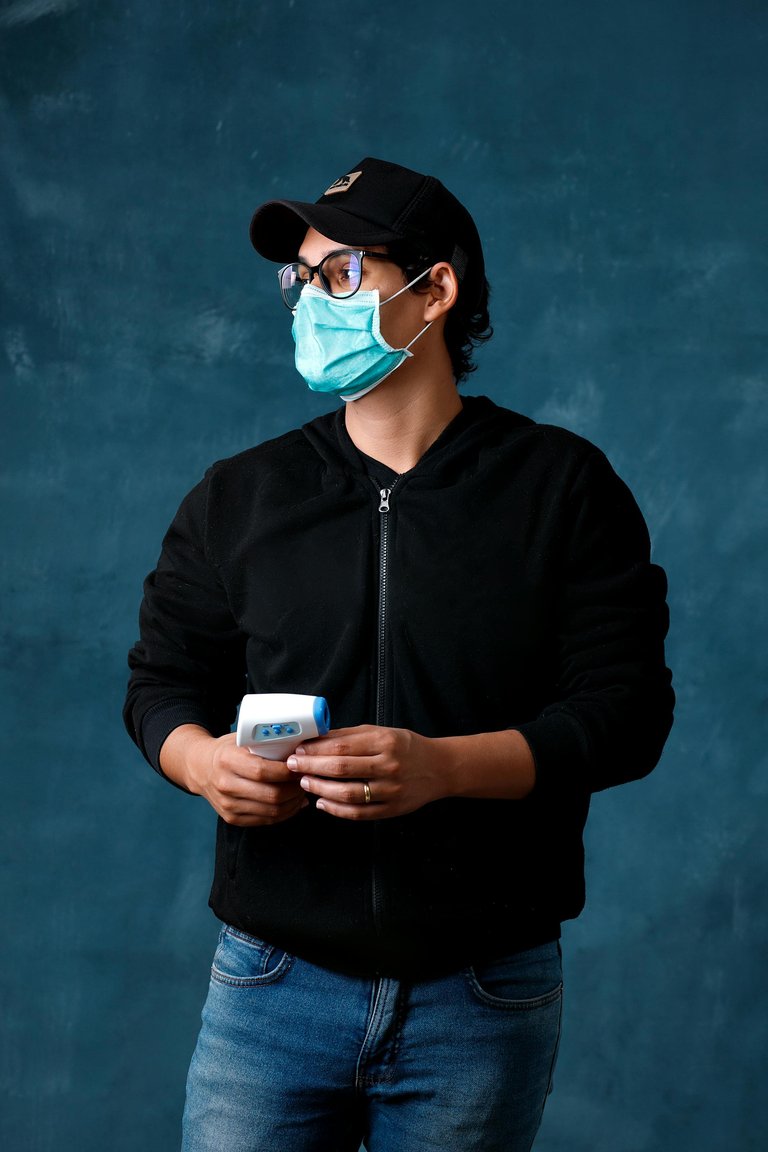
Source
Eugene found himself at a crossroads in 2020, when everything seemed to be pausing. He had graduated from a Niger based , Nigerian university with a degree in project management technology and landed a steady job at a local firm. His parents were proud of him, considering his choice of career as safe and sensible in an unpredictable world, but for Eugene, that security came at a price; something deeper was missing, and despite his success, he felt empty. for a person that has always being good in what so ever he did, he found it difficult to discover his purpose and passion.
Harrison Eugene has always loved fashion as a child. He drew clothes ideas and experimented with textiles in his spare time, while his peers concentrated on sports and academics. But he thought that fashion wasn't a "serious" career choice, just like many others around him. His enthusiasm had been put on hold because of the pressure to succeed in a more conventional career.

Source
Then, in 2020, the pandemic struck. Like many others, Eugene discovered he had more time once his project management work moved remotely. The world was slowing down, so he began to reflect on his hobbies and past experiences. The more old sketchbooks of clothing concepts he thumbed through, the more he realized how much he had missed creating. Something that had started out as a means to pass the time during lockdown quickly sparked a longing that had always been inside of him.
Discovering Fashion During A Crisis

During those months at home, Eugene rediscovered his interest in fashion. He spent hours studying and watching internet videos to understand the fundamentals of sewing and design. Using his limited money from his project management profession, he bought a sewing machine and some fabric from the market. His first few tries were unsuccessful and wasteful, but he persevered, honing his methods and pushing himself to try new things. He began designing garments for himself, then for his friends and family, who were amazed by his abilities. They insisted he take fashion seriously. Eugene's designs gradually gained popularity on social media like Facebook, Tiktok, etc. He found himself daydreaming about converting his pastime into something more, but the path ahead was not simple.
THE STRUGGLE

Source
Eugene's decision to pursue fashion full-time was received with suspicion. The Nigerian fashion market was famously cutthroat, and as a self-taught designer with no formal background, he struggled to make an impact. Established designers, often with decades of expertise and connections, were frequently disdainful of newbies. Rejection from fashion shows and stores became commonplace. Furthermore, Eugene encountered financial difficulties. As the Nigerian economy crumbled during the epidemic, acquiring high-quality materials became more expensive. He also had to balance his job to pay his bills, working late evenings and weekends to make his designs a reality. Every time he spent in his fashion line, whether for materials or marketing, he felt a weight of uncertainty and being unsure 🤔🤔. "What if this doesn't work?" he frequently asked. "What if I am just wasting my time?" There was also social pressure. Being a male fashion designer in Nigeria was not easy. Fashion was often regarded as a female-dominated sector, and Eugene was questioned by friends and family about his career choice. They nevertheless advised him to concentrate on his project management profession, which appeared more stable. But Eugene couldn't ignore the notion that he was destined for something better. Even on the most difficult days, his enthusiasm for fashion kept him going.
FINDING PURPOSE

Source
One day, while discussing his problems with a close friend, Eugene was asked a question that made him pause: "Why are you doing this? What is your purpose in fashion?" That question stayed with him. Eugene had been motivated by his love of fashion up to that moment, but he had not examined the deeper cause for it. He spent days thinking about what fashion meant to him and what he hoped to achieve. Eugene quickly realized that he wanted to use fashion to celebrate African culture, namely Nigeria's rich and unique materials. He realized that his purpose was more than just making clothes; it was to communicate a tale. Growing up, he had always adored the bright colors and intricate patterns of traditional Nigerian fabrics includes ankara, aso oke, and adire. His goal was to show the world that African fashion could be sophisticated, vibrant, and sumptuous while remaining true to its heritage. Eugene began developing patterns that combined traditional Nigerian textiles with contemporary styles, fueled by a renewed sense of purpose. His goal was to create items that were both beautiful and significant, symbolizing a blend of his past and his vision for the future of African design.
BUILDING HIS BRAND

Eugene's concepts remained unnoticed for months. He was turned down time and time again, to the point where he thought about giving up. But his objective kept him in check. He came to see that his work went beyond just producing clothing and that it was worthwhile to fight for his cultural dissemination. Eugene's perseverance at last paid off. He created certain designs, and one of them was worn to a high-profile event by a local influencer in Lagos. Eugene's brand became well-known very fast. As orders started to come in, fashion bloggers started to remark on his unique combination of traditional and contemporary styles. His creations stood out because they sent a message about African pride and innovation in addition to being merely fashionable.
PURPOSE MEETS PASSION
Eugene's Stitches had established itself as a reputable brand in Nigerian fashion by 2023. His creations were seen in major fashion events and worn by celebrities, and his business was praised for its commitment to elevating African fashion on a worldwide scale. But for Eugene, the most important aspect of success was not fame or sales, but the sense of contentment he experienced. He had discovered a way to reconcile his enthusiasm for fashion with his larger goal of promoting his culture. Every piece he designed reflected who he was, where he came from, and where he wanted to take African fashion in the future.
IN CONCLUSION
Eugene is expanding his brand while remaining committed to his concept of creating clothes that are more than just garments. They are works of art that celebrate Nigeria's rich cultural heritage and the colorful spirit of African fashion. Finally, Eugene found that combining purpose and passion may result in something amazing, something that not only fulfills you but also has a long-lasting impact on the world around you.
Thank you for reading FINANCE
Harrison Eugene


